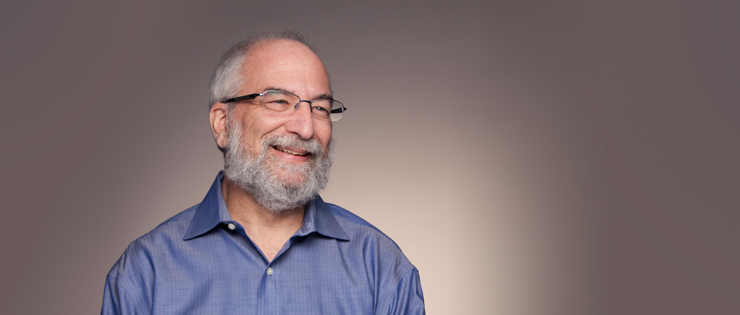Medical Advances in Stem-Cell Therapy: Reprogramming the Immune System to Halt MS Progress
"I knew I was going to be sick [after the stem-cell therapy], but it was gruelling. It took at least a year before I felt human again. It took a year and a half before I noticed any changes."
"He's [stem-cell scientist Harold Atkins] humble and soft-spoken. He gave me back my life. Looking at how the disease [multiple sclerosis] progresses, I don't even know if I would be here. He gave me a second chance."
Jennifer Molson, MS patient, Ottawa
"It's not the same as a cure. A cure means it doesn't come back for the rest of the patient's life."
"So far we have had good results. Is it going to work for the rest of the patient's life? We don't know [yet]."
"Stem cells were such a big part of my field since the '60s. When I was training in the '70s and '80s, we were always hearing about Till and McCulloch. I had the opportunity to train with Dr. McCullooch."
"It's [the award] really special that way."
Dr. Harold Atkins, scientist, The Ottawa Hospital and University of Ottawa
 |
| Dr. Harold Atkins, stem cell transplant physician and scientist at The Ottawa Hospital and the University of Ottawa, will receive the prestigious Till & McCulloch Award for “exceptional contributions to global stem cell research.” The award will be presented at the Till & McCulloch Meeting, organized by the Stem Cell Network, in November, 2017. |
A paper published in the medical journal The Lancet in June of 2016 focused on the outcome of stem-cell therapy on 24 patients, concluding that the treatment brought to a halt brain damage the immune system had caused during the course of the disease. In the process relapses were halted for 70 percent of patients for whom stem-cell therapy was applied. Many patients saw their disabilities stabilized, while some were fortunate enough to recover lost abilities. A result of which is that Dr. Atkins is being recognized for "exceptional contributions to global stem cell research".
That he trained with one of the medical duo who, as Canadian stem cell scientists, pioneered the process, presents as an additional bit of good fortune, in Dr. Atkins' opinion. Jennifer Molson, a patient of Dr. Freedman, is one patient who was able to regain lost abilities. At age 21 in 1990, and an RCMP trainee, she was diagnosed with MS. Her condition by 2001 led to her having to stop working. And that is when Dr. Freedman, her neurologist, informed her of a study and a promising new potential reset to her condition.
The therapy would begin by destroying her immune system, and then her own blood stem cells would be used to restore that vital immune system function. By June of 2002 chemotherapy was started, and the following month the stem cell transplant took place. From a wheelchair, she graduated to a walker followed by braces and crutches. Eventually she was able to walk up and down stairs, regaining the sensation of heat and cold. For the past 15 years no disease-modifying drug has been part of her therapy.
Now, she downhill skis, kayaks and paddleboards. By 2005 she returned to part-time work, and at the present time works at the Ottawa Cancer Centre in their rapid assessment clinic. Although she thinks of her condition as being cured, Dr. Atkins does not feel that nomenclature is yet warranted for no one knows what the long-term effect of the transplant will be; only time will tell. She is one of the most fortunate of patients, of a treatment that doesn't work equally well for everyone with MS.
Patients with the early aggressive representation of MS, a minority of people with MS, are those for whom this therapy works.
Researchers now better understand what type of patient can be considered a good candidate for the procedure. The general acknowledgement is that some measure of damage can be repaired, but if too severe damage results, the brain is susceptible to utilizing all its repair potential. Up to the present, 54 patients with MS and some 20 additional patients with myasthenia gravis and stiff person syndrome have undergone the treatment. A network now exists of physicians in the U.S. and Europe, tracking about a thousand patients between them.
Labels: Bioscience, Disease, Health, Research, Science

0 Comments:
Post a Comment
<< Home